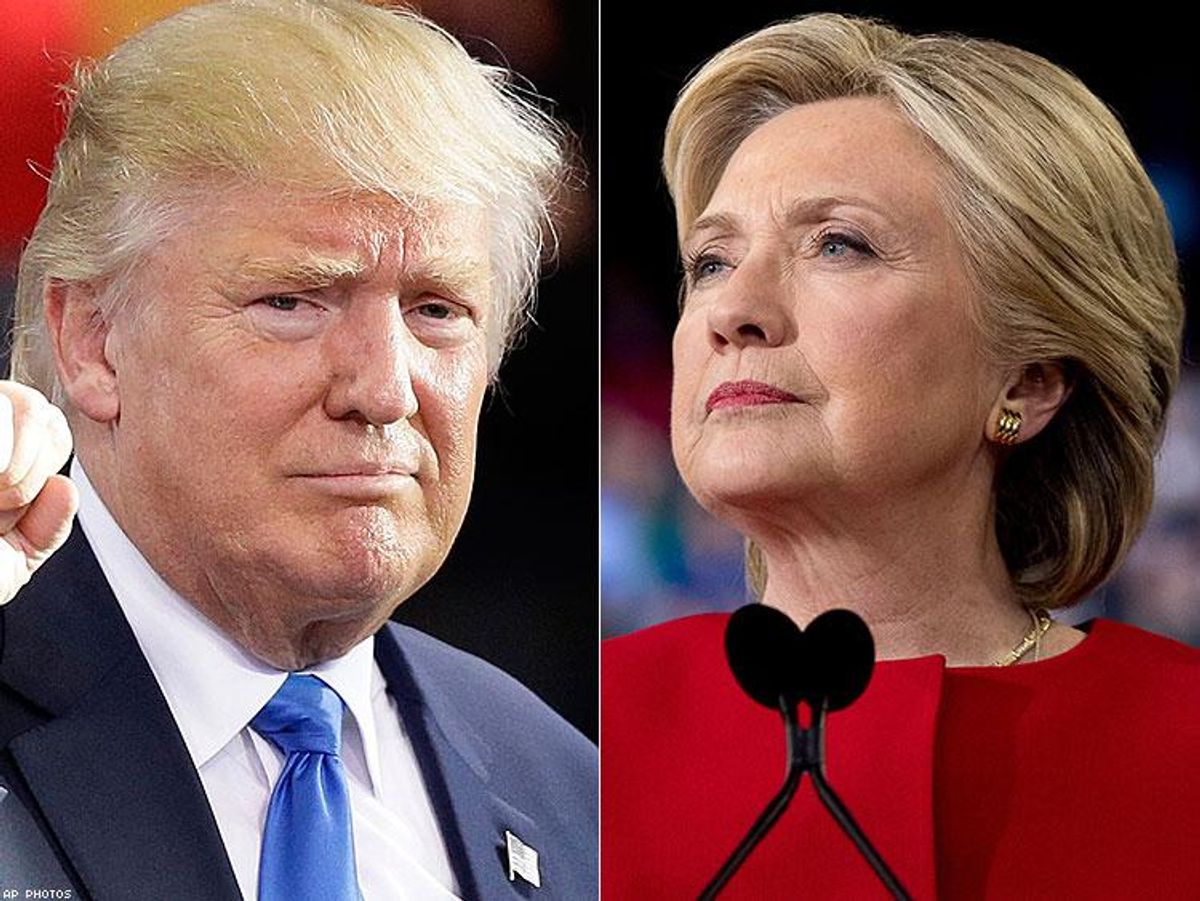
His message of "Make America Great Again" apparently resonated with enough voters.
November 09 2016 2:46 AM EST
November 09 2016 7:28 AM EST
trudestress
By continuing to use our site, you agree to our Private Policy and Terms of Use.

His message of "Make America Great Again" apparently resonated with enough voters.
To many people, it was unthinkable, and the unthinkable has happened: Donald Trump has been elected president of the United States.
The bombastic businessman was declared the winner of the 2016 election by the Associated Press at 2:30 a.m. ET when he clinched Wisconsin state, giving him an insurmountable lead in the Electoral College, the AP reports. He had surprising victories in states including North Carolina, Pennsylvania and Florida.
Trump ran a campaign in which he offended almost anyone who isn't white and Christian, while Hillary Clinton, who would have been the first woman president of the U.S., projected an inclusive vision of America, appealing to people of all races, all faiths, all sexual orientations and gender identities. But apparently his appeal to frustrated working-class whites was greater than anyone estimated.
Clinton offered specific policy proposals during the campaign, while Trump essentially told voters to support him because he was the only person who could "Make America Great Again," his slogan. But that apparently resonated with enough voters.
Trump made statements that would have sunk many a candidate, saying that many Mexican immigrants are criminals and proposing at one point that all Muslims be barred from entering the country. He even won the support of white supremacists.
Several women came forward to accuse Trump of sexual assault after a recording from 2005 surfaced of him bragging that he could grab women by the genitals and get away with it because he's a star. He denied actually engaging in such behavior.
He avoided specifically anti-LGBT rhetoric, but he did pledge to nominate Supreme Court justices who would overturn marriage equality if they had a chance, and he supported the First Amendment Defense Act, a piece of federal legislation that would give legal cover to businesses and individuals, even government employees, who did not want to serve same-sex couples or others who offended their religious beliefs. Clinton, in contrast, supports the Equality Act, which would ban anti-LGBT discrimination nationwide in employment, housing, and a variety of other venues.
Trump chose Mike Pence, who has an anti-LGBT record as governor of Indiana and in his previous service in Congress, as his running mate. Clinton chose Tim Kaine, a U.S. senator from Virginia, former governor of the state, and former mayor of Richmond, who has a history of supporting LGBT rights -- although both he and Clinton did not come out for marriage equality until 2013.
Clinton had the endorsement of the Human Rights Campaign, the nation's largest LGBT rights group, and of The Advocate. The HRC endorsement was somewhat controversial because it came when she was still battling it out with Vermont Sen. Bernie Sanders, a favorite of many progressives, for the Democratic nomination. After she won the nomination, Sanders endorsed her, and he campaigned for her throughout the general election season.